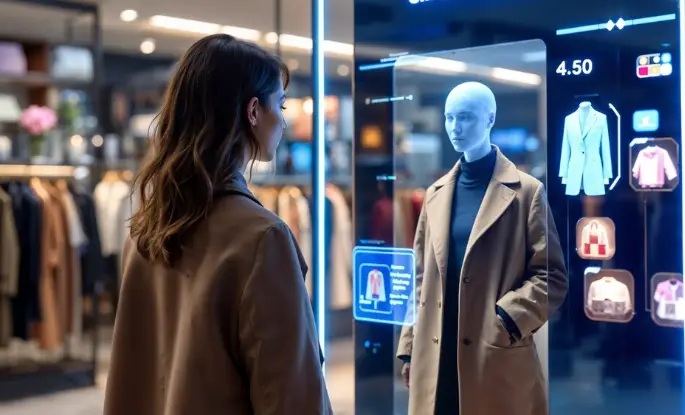In 2025, the marketing landscape is increasingly defined by the drive for personalization. Consumers today are not just looking for products and services; they expect brands to understand their needs, preferences, and interests, delivering experiences that feel tailored specifically for them. Building a personalized marketing strategy has become essential for brands that want to stand out in a competitive market. As technology continues to advance and data becomes more accessible, marketers are now equipped with the tools to offer unique, customized experiences on a scale that was unimaginable just a few years ago. In this new era, personalization is not a luxury but a necessity, and brands that master it will have a significant advantage.
Data lies at the heart of any personalized marketing strategy. In 2025, the ability to gather, analyze, and interpret data has never been more important. With the rise of artificial intelligence (AI) and machine learning, brands have access to an unprecedented amount of information about their customers. This includes data from online browsing behavior, purchase history, social media interactions, and even offline activities. The key to building a successful personalized strategy is not just collecting data but making sense of it. Advanced analytics tools allow marketers to understand patterns, predict trends, and gain insights into consumer behavior. These insights can then be used to create marketing messages that resonate with specific segments of an audience, making every interaction more meaningful and relevant.

Segmentation is a fundamental aspect of personalization. In 2025, segmentation goes beyond traditional demographics like age, gender, and location. Brands are now segmenting their audiences based on psychographics, lifestyle, purchasing habits, and even real-time behaviors. This deeper level of segmentation allows for more accurate targeting, ensuring that marketing efforts are directed towards the right people at the right time. Instead of treating customers as a homogenous group, brands are recognizing the individuality of each consumer. By using AI and predictive analytics, marketers can anticipate what customers want before they even realize it, allowing them to deliver personalized recommendations and offers that increase the likelihood of conversion. This kind of precision targeting not only improves marketing efficiency but also builds a stronger emotional connection between the brand and the consumer.
Content customization is a key component of a personalized marketing strategy. In 2025, brands are no longer creating one-size-fits-all content but are instead developing a range of messages that cater to different segments of their audience. Dynamic content is a growing trend, where the content displayed to a user is adjusted in real time based on their preferences and behaviors. For example, an email newsletter may showcase different products depending on the recipient’s previous interactions with the brand, while a website homepage may display personalized recommendations based on past browsing activity. This level of customization requires a robust content management system and the use of AI-driven tools that can dynamically adjust content on the fly. The result is a more engaging and relevant experience that keeps consumers coming back for more.
“With the rise of artificial intelligence (AI) and machine learning, brands have access to an unprecedented amount of information about their customers.”
Customer journey mapping is another crucial element in building a personalized marketing strategy. Understanding the customer journey is about knowing what each step looks like from the initial awareness phase to the final purchase and beyond. In 2025, marketers are investing heavily in creating detailed customer journey maps that highlight touchpoints where personalization can make the biggest impact. These maps are built using data collected across various channels, including websites, social media, and in-store interactions. By identifying the key moments in a customer’s journey, brands can deliver personalized content that guides them seamlessly from one stage to the next. For example, a customer who abandons a shopping cart may receive a personalized email reminder with a discount, while a loyal customer might get early access to new products based on their purchase history. This tailored approach ensures that each customer feels valued and understood at every stage of their interaction with the brand.
Technology plays a pivotal role in executing a personalized marketing strategy. In 2025, brands are leveraging a wide range of technological tools to enhance personalization efforts. AI and machine learning are at the forefront, enabling brands to automate processes, predict consumer behavior, and create personalized experiences at scale. AI-powered chatbots are becoming more sophisticated, providing real-time, personalized support and product recommendations based on customer inquiries. Additionally, marketing automation platforms are allowing brands to send targeted emails, social media ads, and push notifications that are highly relevant to individual users. This automation not only saves time and resources but also ensures that personalization is consistent across all channels, maintaining a cohesive brand experience.

Privacy and data security have become critical considerations in building a personalized marketing strategy for 2025. As consumers become more concerned about how their data is collected and used, brands must prioritize transparency and ethical data practices. In 2025, data privacy regulations are stricter than ever, requiring brands to obtain explicit consent before gathering personal information. To build trust with consumers, brands need to be open about what data they collect, how it will be used, and what benefits the customer will receive in return. This has led to a rise in zero-party data collection, where consumers willingly provide information to brands in exchange for more personalized experiences. Whether through surveys, preference centers, or loyalty programs, brands are finding new ways to collect valuable insights while respecting consumer privacy, creating a mutually beneficial relationship.
Social media remains a powerful platform for personalized marketing in 2025. Social channels are not just a place for brands to broadcast messages but a space for meaningful interaction with consumers. Personalized social media advertising has become more advanced, with AI algorithms targeting users based on their interests, online behaviors, and even the content they engage with in real-time. Additionally, brands are using social media to foster community and connection, creating personalized experiences that go beyond traditional advertising. This includes hosting exclusive events for loyal followers, responding to individual comments with tailored information, and engaging with user-generated content that reflects the brand’s identity. In this way, social media becomes a key channel for delivering a personalized brand experience that builds loyalty and trust.

The use of personalization extends into e-commerce, where the online shopping experience in 2025 is more tailored than ever before. E-commerce platforms are now equipped with recommendation engines that suggest products based on browsing history, previous purchases, and even real-time website interactions. Personalization has evolved to include augmented reality (AR) and virtual reality (VR) experiences, allowing customers to visualize products in their own space before making a purchase. Brands are also using AI to create personalized pricing and promotions, offering discounts and incentives based on customer loyalty and purchasing behavior. These personalized experiences make online shopping more convenient and enjoyable, driving higher engagement and increasing the likelihood of repeat business.
In 2025, email marketing continues to be a cornerstone of personalized marketing strategies. However, the approach to email has shifted from generic mass mailings to hyper-personalized communications. Brands are using AI-driven platforms to segment their email lists and send tailored messages that cater to individual preferences. Whether it’s a personalized product recommendation, a reminder about an abandoned cart, or a birthday greeting with a special discount, each email is designed to speak directly to the recipient. The rise of interactive emails has also transformed the email marketing landscape, with brands incorporating elements like quizzes, surveys, and embedded videos to make emails more engaging. This level of personalization ensures that emails stand out in crowded inboxes, capturing the attention of consumers and driving higher open and click-through rates.
The success of a personalized marketing strategy in 2025 is measured by its ability to create lasting connections with consumers. While technology and data are essential components, the human element remains crucial. Brands must focus on understanding their audience, listening to their needs, and responding with genuine and authentic communication. The goal is to move beyond transactional relationships and build emotional connections that foster brand loyalty. By combining the power of data with a deep understanding of consumer psychology, brands can create personalized experiences that not only drive sales but also cultivate long-term relationships. As personalization becomes the standard, brands that fail to adopt a personalized approach risk being left behind, while those that master it will thrive in an increasingly competitive marketplace.


